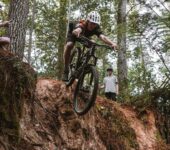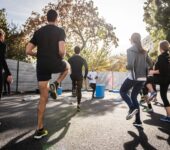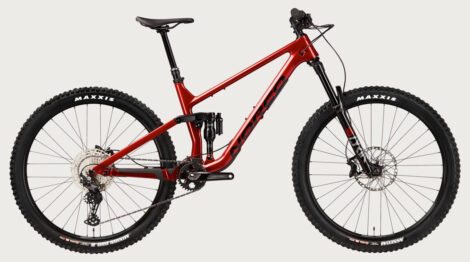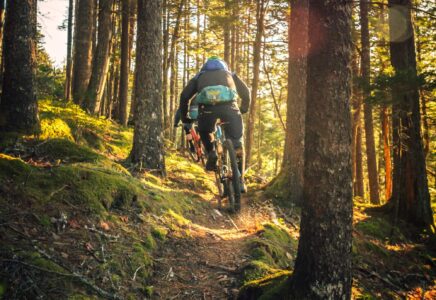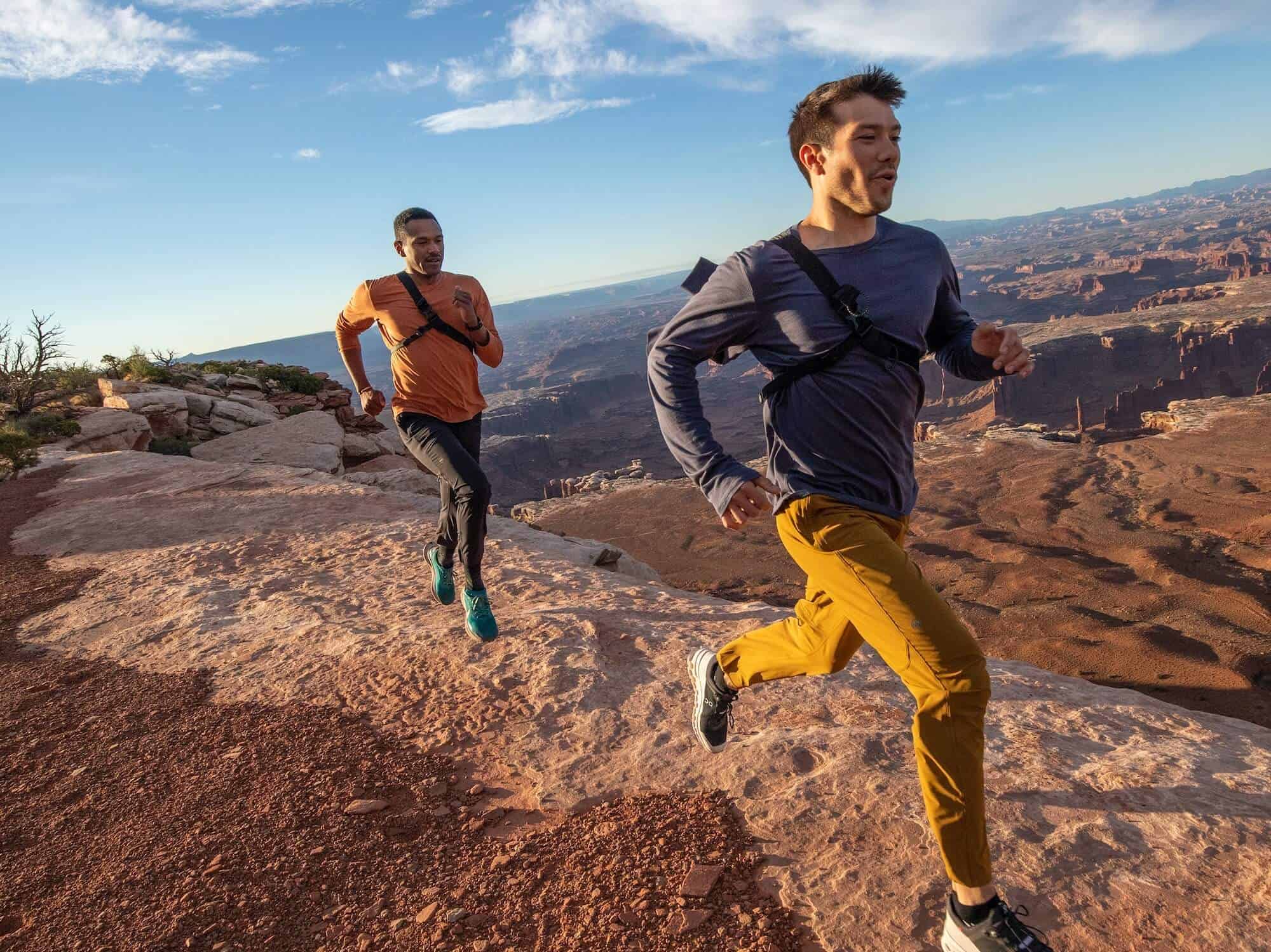
Photo by Jack Lemon
I’m a huge proponent of diversifying my training and exercise schedule. Cycling is my first love and probably always will be, but I just don’t feel complete when I’m only biking. So over the last year, I’ve tried to see how I could add other disciplines to help me become a better mountain biker. As a result, I can say that these different forms of training have helped me be a more well-rounded athlete. In addition, they’ve helped expand my ability to ride and hopefully lengthen the time I will be able to continue riding as I get older.
Trail running to become a better mountain biker
One of these other disciplines that I found highly beneficial to mountain biking is trail running. I was a trail runner long before I ever got on a mountain bike, and in many ways, the sport shaped my knowledge of terrain and navigation in the woods. When I “graduated” to riding on trails, my relationship with the landscape definitely changed. Still, the essence of being in the wild stayed the same. Trail running paved the way for me to understand how trails flow, balance my weight, and keep a steady heart rate. The sport also taught me about energy conservation, self-sufficiency, and proper planning. But now that I’m back running after a long hiatus, I’ve found that it can teach me quite a few more subtle lessons for mountain biking.
This past winter, I completed my longest ultra-marathon to date: the Uwharrie 40-mile trail run. I had done the 20-miler 14 years ago when I was in my early twenties, and the 40 was always on my bucket list. As the race approached this past winter, I kept my expectations reasonably low. The longest trail run I had done in training was 16 miles, and though I felt fairly strong, I didn’t know if my body could cover the 40. On the day of the race, I planned to set a sustainable pace and constantly check in with my body to see how I was doing. As I neared the turnaround point at 20 miles, I thought, “Maybe I can do this.” Six hours later, I was standing next to a warm fire, hot dog in hand, flush with the feeling that I had accomplished something of immense difficulty.
So what does all of this have to do with mountain biking?
Trail running helps me slow down and take stock of my mind and body while exercising. Mountain biking is my adrenaline rush time: a place to move fast and shred and push myself into unsettling zones, both in skill and physical exertion. I rarely have time to take in what is happening around me, so I don’t always internalize my natural surroundings or learn the terrain I’m riding. Instead, my mind and body are in constant analysis mode. Am I going up or down? Is the trail technical or smooth? What do I need to watch out for around the corner?
Trail running slows the constant analysis down.
I can take time to listen to what is happening around me, taking in the types of trees and general feel of an area. I can also see new lines that I may not have time to recognize on the same trail sections I had just blasted through on my bike. In essence, I allow myself to sink in a bit more to the trail; strangely, the trail speaks back to me.
I don't recommend trail running on pure mountain bike trails unless that's your only option.
Most trails are flowy on the bike, which does not translate to the run. Tight corners, abrupt elevation changes, or rock gardens are not fun to run through. Also, you must always be on the lookout for mountain bikers hauling ass behind or in front of you. They may not have time to stop if they see you, so you must be as alert as possible to jump off the trail if required.
Finally, trail running helps me tap into my exercise life’s creative side. I find myself daydreaming about all sorts of things. From adventures I want to have, races I want to experience, or maybe the beer I want to grab from the store on the way home. I often think of biking while I run, visualizing how I would turn through a specific turn. When completed, I feel like I’ve packed the calorie-burning equivalent of a 2-hour ride into a quick 50 minutes. With the trail run finished, I think of the coming days when I’ll be back on my bike, refreshed and ready to see the trails in a way I had never been able to before.
Matthew Chisholm
Matt Chisholm is a data analyst and freelance writer who studies the environmental history of the Southern Smoky Mountain region of North Carolina. He was a contributor to Lost in Transition: Removing, Resettling, and Renewing Appalachia and the 2016 edition of the Journal of East Tennessee History, for which he won the 2017 McClung Award. When not writing, Matt enjoys road and mountain biking, hiking, trail running, and drinking beer around Concord, NC where he lives with his wife, daughter, and twin boys.
Get the email for busy mountain bikers.
Discover the best products + gear, and learn about deals from brands you love.

